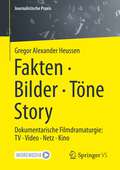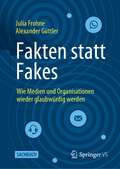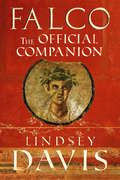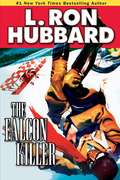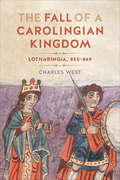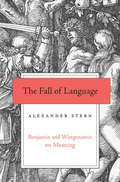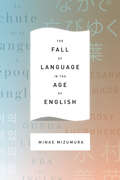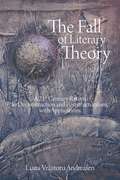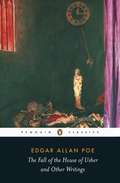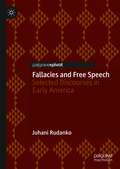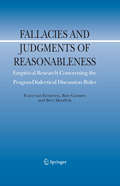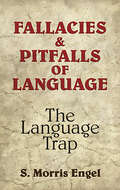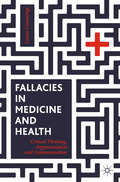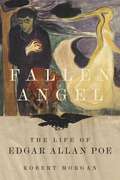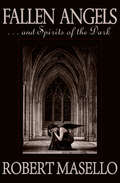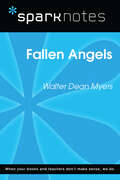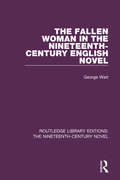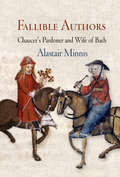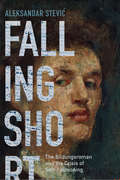- Table View
- List View
Fakten · Bilder · Töne · Story: Dokumentarische Filmdramaturgie: TV · Video · Netz · Kino (Journalistische Praxis)
by Gregor Alexander HeussenDokumentarische Filme aller Genres in TV, Kino und Netz entfalten ihre informative Kraft erst dann, wenn sie dramaturgisch als Erzählungen strukturiert sind, nicht als Aufzählungen. Sie müssen die Emotionen des Publikums wecken, damit die filmische Information verstanden werden kann. Wirksame dokumentarische Filmgestaltung ist begründet in der Art, wie Menschen hinschauen und hinhören. Ihre Wahrnehmungen werden zu Vorstellungen; diese prägen die Information. Dadurch verändern sich viele überkommene Regeln für Dokumentarische Filme. Neue Ideen werden möglich. Werkzeuge dafür sind der Erzählsatz, die Roten Fäden, die Drama-Elementarmuster, das konzentrierte Zusammenspiel der sechs filmischen Erzähler, Emotionsziel und Argumentziel und die für Erzählungen charakteristische Polaritätslogik. Anders als fiktionale Filme müssen Dokumentarische Filme durch ihre erzählerische Struktur und filmische Gestaltung einen nachprüfbaren Bezug zur Lebensrealität des Publikums schaffen. Spielfilme hingegen können in ihrem jeweils definierten Erzählkosmos plausibel und authentisch sein. Im Dokumentarischen lassen sich auch Werkzeuge und Muster der Fiktionalen Dramaturgie nutzen, aber mit anderer Absicht und Wirkung: sie müssen die Lebensrealität treffen. Das Buch von Gregor Alexander Heussen zeigt Dokumentarische Dramaturgie praktisch; und begründet sie mit Erkenntnissen der Kognitionswissenschaft. Redakteure* und Film-Auftraggeber* finden Werkzeuge und Denkwege für Planung, und Filmabnahme. Autoren* erfahren die Kraft der dramaturgischen Recherche und entdecken neue Gestaltungsmöglichkeiten bei Dreh und Montage. Das Buch ist ein Muss für alle, die sich für dokumentarischen Film in TV, Kino, Netz und Unternehmen interessieren. Mit dem Buch sind 29 runterladbare, sofort nutzbare Drama-Werkzeuge verlinkt.
Fakten statt Fakes: Wie Medien und Organisationen wieder glaubwürdig werden
by Julia Frohne Alexander GüttlerFake News, PR-Skandal, Mainstream-Presse – diese Schlagworte kennzeichnen vor allem eines: den Vertrauensverlust der Öffentlichkeit in die Berichterstattung von Medien und Unternehmen. In einem nahezu unentwirrbaren Kommunikationsdschungel aus Medien, Internetportalen und sozialen Plattformen wird es nicht nur für Laien immer schwieriger, verlässliche und unseriöse Kommunikation voneinander zu unterscheiden.So steigt die Anzahl derer, die professioneller Kommunikation mit Misstrauen begegnen und in ihr vor allem Einflussnahme oder gar Manipulation sehen. Aus den Augen gerät dabei oft, dass Deutschland über eines der freiheitlichsten und vielfältigsten Mediensysteme der Welt verfügt.Das Buch diskutiert die Grenzen zwischen Manipulation und Kommunikation on- wie offline und zeigt, wie man schlampige und seriöse Meinungsmacher unterscheidet, welche Rolle Fakten spielen und wie Medien und Unternehmen dazu beitragen können, dass Glaubwürdigkeit in der medialen Debatte wieder einen Stellenwert bekommt.
Falco: The Official Companion
by Lindsey DavisOne of the stories from the bestselling historical fiction Falco series.As the girl came running up the steps, I decided she was wearing far too many clothes...So, in 1989, readers were introduced to Marcus Didius Falco, the Roman informer, as he stood on the steps of the Temple of Saturn, looking out across the Forum: the heart of his world. Twenty years and twenty books later, Falco fans want a companion volume.Only here will you learn the author's private background, including her descent from a failed assassin and how atheism improved her knitting. Here too are the real glories and heartache involved in research and creation: why the baby had to be born in Barcelona, which plots evolved from intense loathing of management trainees, what part a thermal vest played in the iconic Falco's conception. It can't be a complete handbook to ancient Rome, but it covers perennial issues. There are a hundred illustrations, some specially commissioned, others from family archives. Enlightening quotations come from the Falco books and from eminent sources: Juvenal, through Chandler, to 1066 and All That.Readers have asked for this book. Their paranoid, secretive author agrees it is now or never. Time to spill beans on the travertine...
Falcon Killer, The
by L. Ron HubbardEnjoy this gripping and gritty tale. China's war ace, a fighter pilot nicknamed "The Falcon Killer (Tzun Kai)," is actually Bill Gaylord, raised in Peking by his American parents. Gaylord lost both of them as a child during the violent Boxer uprising and then saw his foster family slaughtered in wartime. With a past that's hardened his soul and given him nerves of steel, Gaylord has used his resolve to down more Japanese aircraft than can be counted.When he's not hunting down enemy planes, intrigue constantly follows him--stars of Tzun's rogues gallery include an agent provocateur and a despotic Chinese warlord. Soon enough, events pit Gaylord against a Japanese spy who has caused untold trouble for the Chinese. Gaylord must somehow find and defeat him or risk losing an ancient Chinese kingdom to the land of the rising sun. "Hubbard writes with his usual gusto ('Wings in the sky had passed their shadows over the land to drop their acrid death'), and Gaylord is a typical Hubbard hero, tough and wily but also introspective and romantic." --Booklist
The Fall of a Carolingian Kingdom: Lotharingia 855–869
by Charles WestThe Fall of a Carolingian Kingdom investigates how the first royal divorce scandal led to the collapse of a kingdom, changing the fate of medieval Europe. Through a set of annotated translations of key contemporary sources, the book presents the downfall of the Frankish kingdom of Lotharingia as a case study in early medieval politics, equipping readers to develop their own independent interpretations. The book tracks the twists and turns of the scandal as it unfolded over a crucial decade and a half in the ninth century. Drawing on primary sources such as letters, material culture, and secret treaties, The Fall of a Carolingian Kingdom offers readers a sharply defined window into one of the most dramatic episodes in Carolingian history, rich with insights on the workings of early medieval society.
The Fall of Cities in the Mediterranean
by Bachvarova, Mary R. and Dutsch, Dorota and Suter, Ann Mary R. Bachvarova Dorota Dutsch Ann SuterA body of theory has developed about the role and function of memory in creating and maintaining cultural identity. Yet there has been no consideration of the rich Mediterranean and Near Eastern traditions of laments for fallen cities in commemorating or resolving communal trauma. This volume offers new insights into the trope of the fallen city in folk-song and a variety of literary genres. These commemorations reveal memories modified by diverse agendas, and contains narrative structures and motifs that show the meaning of memory-making about fallen cities. Opening a new avenue of research into the Mediterranean genre of city lament, this book examines references to, or re-workings of, otherwise lost texts or ways of commemorating fallen cities in the extant texts, and with greater emphasis than usual on the point of view of the victors.
The Fall of Language: Benjamin and Wittgenstein on Meaning
by Alexander SternKnown for his essays on culture, aesthetics, and literature, Walter Benjamin also wrote on the philosophy of language. For Alexander Stern, his famously obscure—and, for some, hopelessly mystical—early work contains important insights, anticipating and in some respects surpassing Wittgenstein’s later thinking on the philosophy of language.
The Fall of Language in the Age of English
by Juliet Winters Carpenter Minae Mizumura Mari YoshiharaMinae Mizumura was born in Tokyo, moved to New York at the age of twelve, and studied French literature at Yale University. Acclaimed for her audacious experimentation and skillful storytelling, Mizumura has won major literary awards for all four of her novels--one of which, A True Novel, recently was published in English. She lives in Tokyo.
The Fall of Language in the Age of English
by Minae MizumuraWinner of the Kobayashi Hideo Award, The Fall of Language in the Age of English lays bare the struggle to retain the brilliance of one's own language in this period of English-language dominance. Born in Tokyo but raised and educated in the United States, Minae Mizumura acknowledges the value of a universal language in the pursuit of knowledge yet also embraces the different ways of understanding offered by multiple tongues. She warns against losing this precious diversity.Universal languages have always played a pivotal role in advancing human societies, Mizumura shows, but in the globalized world of the Internet, English is fast becoming the sole common language of humanity. The process is unstoppable, and striving for total language equality is delusional—and yet, particular kinds of knowledge can be gained only through writings in specific languages.Mizumura calls these writings "texts" and their ultimate form "literature." Only through literature and, more fundamentally, through the diverse languages that give birth to a variety of literatures, can we nurture and enrich humanity. Incorporating her own experiences as a writer and a lover of language and embedding a parallel history of Japanese, Mizumura offers an intimate look at the phenomena of individual and national expression.
The Fall of Language in the Age of English
by Minae Mizumura translated by Mari Yoshihara Juliet Winters CarpenterMinae Mizumura was born in Tokyo, moved to New York at the age of twelve, and studied French literature at Yale University. Acclaimed for her audacious experimentation and skillful storytelling, Mizumura has won major literary awards for all four of her novels--one of which, A True Novel, recently was published in English. She lives in Tokyo.
The Fall of Language in the Age of English
by Minae Mizumura Mari Yoshihara Juliet Winters CarpenterMinae Mizumura was born in Tokyo, moved to New York at the age of twelve, and studied French literature at Yale University. Acclaimed for her audacious experimentation and skillful storytelling, Mizumura has won major literary awards for all four of her novels--one of which, A True Novel, recently was published in English. She lives in Tokyo.
The Fall of Literary Theory: A 21st Century Return to Deconstruction and Poststructuralism, with Applications
by Liana AndreasenThe book revives literary theory, which was popular at the end of the 20th century, with the purpose of showing how useful it is in the current century in opening the minds of students to the dangers of claiming to have a fixed identity. The book shows that in Western cultures identity is a construct that always sees individuals as lacking something (being fallen) that can be retrieved or gained at the expense of an Other, an adversary seen as standing in the way of identity fulfillment. The book shows the history of "fallenness" through an analysis of Melville's Billy Budd, Faulkner's Absalom, Absalom!, Pynchon's The Crying of Lot 49. It also shows ways to heal identity through an analysis of Toni Morrison's Beloved and Rudolfo Anaya's Tortuga.
The Fall of the House of Usher and Other Writings: Poems, Tales, Essays, And Reviews
by Edgar Allan PoeThe Fall of the House of Usher and Other Writings is a collection that displays the full force of Edgar Allen Poe's mastery of both Gothic horror and the short story form. This Penguin Classics edition is edited with an introduction and notes by David Galloway.This selection of Poe's critical writings, short fiction and poetry demonstrates his intense interest in aesthetic issues, and the astonishing power and imagination with which he probed the darkest corners of the human mind. 'The Fall of the House of Usher' is a slow-burning Gothic horror, describing the final hours of a family tormented by tragedy and the legacy of the past. In 'The Tell-Tale Heart', a murderer's insane delusions threaten to betray him, while stories such as 'The Pit and the Pendulum', 'The Raven' and 'The Cask of Amontillado' explore extreme states of decadence, fear and hate. In his introduction David Galloway re-examines the myths surrounding Poe's life and reputation. This edition includes a new chronology and suggestions for further reading.Although dissipated in his youth and plagued by mental instability towards the end of his life, Boston-born Edgar Allan Poe (1809-49) had a variety of occupations, including service in the US army and magazine editor, as well as his remarkable literary output.If you enjoyed The Fall of the House of Usher, you might like Horace Walpole's The Castle of Otranto, also available in Penguin Classics.'The most original genius that America has produced'Alfred, Lord Tennyson'Poe has entered our popular consciousness as no other American writer'The New York Times Book Review
Fallacies and Free Speech: Selected Discourses in Early America
by Juhani RudankoThis book offers a new perspective on selected discourses and texts bearing on the evolution of a distinctively American tradition of free speech. The author’s approach privileges fallacy theory, especially the fallacy of ad socordiam, in a key Congressional debate in 1789 and other forms of verbal manipulation in newspaper editorials during the War of 1812. He argues that in order to understand James Madison’s role in the evolution of a broad conception of freedom of speech, it is imperative to examine the nature of the verbal attacks targeted at him. These attacks are documented, analyzed with the concept of aggravated impoliteness, and used to demonstrate that it was Madison’s toleration of criticism, even in wartime, that provided a foundation for a broad conception of freedom of speech. This book will be of interest to both scholars and lay readers with an interest in the application of discourse analysis and historical pragmatics to political debates, argumentation theory and fallacy theory, and the evolution of the concept of freedom of speech in the early years of the United States.
Fallacies and Judgments of Reasonableness
by Bert Meuffels Frans H. van Eemeren Bart GarssenIn Fallacies and Judgments of Reasonableness, Frans H. van Eemeren, Bart Garssen and Bert Meuffels report on their systematic empirical research of the conventional validity of the pragma-dialectical discussion rules. The experimental studies they carried out during more than ten years start from the pragma-dialectical theory of argumentation developed at the University of Amsterdam, their home university. In these studies they test methodically the intersubjective acceptability of the rules for critical discussion proposed in this theory by confronting ordinary arguers who have not received any special education in argumentation and fallacies with discussion fragments containing both fallacious and non-fallacious argumentative moves. The research covers a wide range of informal fallacies. In this way, the authors create a basis for comparing the theoretical reasonableness conception of pragma-dialectics with the norms for judging argumentative moves prevailing in argumentative practice. Fallacies and Judgments of Reasonableness provides a unique insight into the relationship between theoretical and practical conceptions of reasonableness, supported by extensive empirical material gained by means of sophisticated experimental research.
Fallacies and Pitfalls of Language: The Language Trap (Dover Language Guides)
by S. Morris EngelAs S. Morris Engel alerts us in this eye-opening book, we risk falling into potentially harmful language traps every moment. Not just the occasional malapropism or grammatical faux pas, but a more sinister kind -- distortions of meaning that would persuade us to believe something that may not be true.Sometimes these language traps are set for us deliberately by politicians, advertisers, journalists, lawyers or other professional persuaders. Sometimes they are set inadvertently by our friends, our loved ones -- even ourselves. This work explains how and why these fallacies work, and how we may suffer the consequences when they do.Day after day we listen to government newspeak (our troops are called "peace-keeping forces"), exaggerated advertising claims from "leading authorities," twisted logic and misleading propaganda. We are treated to more and more euphemisms (slums are called "substandard housing"; dogcatchers, "animal welfare officers"). We encounter innumerable ambiguities ("I wish you all the good fortune you deserve") -- and indulge in a few ourselves. The author wittily explores this verbal minefield, and tells us how to spot a language trap and how to avoid falling in.The book is not only a useful manual of verbal self-defense, it's an engrossing study of the nature of language and the subtle ways in which it operates. It will intrigue anyone interested in words, language, and the dynamics of modern culture.
Fallacies in Medicine and Health: Critical Thinking, Argumentation and Communication
by Louise CummingsThis textbook examines the ways in which arguments may be used and abused in medicine and health. The central claim is that a group of arguments known as the informal fallacies – including slippery slope arguments, fear appeal, and the argument from ignorance – undertake considerable work in medical and health contexts, and that they can in fact be rationally warranted ways of understanding complex topics, contrary to the views of many earlier philosophers and logicians. Modern medicine and healthcare require lay people to engage with increasingly complex decisions in areas such as immunization, lifestyle and dietary choices, and health screening. Many of the so-called fallacies of reasoning can also be viewed as cognitive heuristics or short-cuts which help individuals make decisions in these contexts. Using features such as learning objectives, case studies and end-of-unit questions, this textbook examines topical issues and debates in all areas of medicine and health, including antibiotic use and resistance, genetic engineering, euthanasia, addiction to prescription opioids, and the legalization of cannabis. It will be useful to students of critical thinking, reasoning, logic, argumentation, rhetoric, communication, health humanities, philosophy and linguistics.
Fallen Angel: The Life of Edgar Allan Poe
by Robert MorganOver 170 years after his death, Edgar Allan Poe remains a figure of enduring fascination and speculation for readers, scholars, and devotees of the weird and macabre. In Fallen Angel, acclaimed novelist and poet Robert Morgan offers a new biography of this gifted, complicated author.Focusing on Poe’s personal relationships, Morgan chronicles how several women influenced his life and art. Eliza Poe, his mother, died before he turned three, but she haunted him ever after. The loss of Elmira Royster Shelton, his first and last love, devastated him and inspired much of his poetry. Morgan shows that Poe, known for his gothic and supernatural writing, was also a poet of the natural world who helped invent the detective story, science fiction, analytical criticism, and symbolist aesthetics. Though he died at age forty, Poe left behind works of great originality and vision that Fallen Angel explores with depth and feeling.
Fallen Angels: . . . And Spirits of the Dark
by Robert Masello&“My name is Legion: for we are many.&” —Mark 5:9 They have been with us since the beginning of time. Walking the centuries in our myths, our art, our literature . . . and in our dreams. Victims of temptation and sin, they are spirits who fell from heaven&’s grace, emerging anew as servants of darkness. Here, in one spellbinding volume, are the most infamous denizens of the Underworld—from Lucifer, the first angel who challenged God&’s will, to the fathomless legions of demons and fiends who haunt us to this day. Explore their world, hear their stories, unravel their secrets, and discover for yourself that even angels can have a dark side . . .
Fallen Angels (SparkNotes Literature Guide Series)
by SparkNotesFallen Angels (SparkNotes Literature Guide) by Walter Dean Myers Making the reading experience fun! Created by Harvard students for students everywhere, SparkNotes is a new breed of study guide: smarter, better, faster.Geared to what today's students need to know, SparkNotes provides:chapter-by-chapter analysis explanations of key themes, motifs, and symbols a review quiz and essay topics Lively and accessible, these guides are perfect for late-night studying and writing papers.
Fallen Angels and Related Readings (Literature Connections)
by Walter Dean MyersApart from the novel on Vietnam war - Fallen Angels - this book features rare letters from soldiers on their life and condition in war zone, letters to families and poems about the veterans who lost their lives.
The Fallen Woman in the Nineteenth-Century English Novel (Routledge Library Editions: The Nineteenth-Century Novel #39)
by George WattA sympathetic view of the fallen women in Victorian England begins in the novel. First published in 1984, this book shows that the fallen woman in the nineteenth-century novel is, amongst other things, a direct response to the new society. Through the examination of Dickens, Gaskell, Collins, Moore, Trollope, Gissing and Hardy, it demonstrates that the fallen woman is the first in a long line of sympathetic creations which clash with many prevailing social attitudes, and especially with the supposedly accepted dichotomy of the ‘two women’. This book will be of interest to students of nineteenth-century literature and women in literature.
Fallible Authors
by Alastair MinnisCan an outrageously immoral man or a scandalous woman teach morality or lead people to virtue? Does personal fallibility devalue one's words and deeds? Is it possible to separate the private from the public, to segregate individual failing from official function? Chaucer addressed these perennial issues through two problematic authority figures, the Pardoner and the Wife of Bath. The Pardoner dares to assume official roles to which he has no legal claim and for which he is quite unsuited. We are faced with the shocking consequences of the belief, standard for the time, that immorality is not necessarily a bar to effective ministry. Even more subversively, the Wife of Bath, who represents one of the most despised stereotypes in medieval literature, the sexually rapacious widow, dispenses wisdom of the highest order.This innovative book places these "fallible authors" within the full intellectual context that gave them meaning. Alastair Minnis magisterially examines the impact of Aristotelian thought on preaching theory, the controversial practice of granting indulgences, religious and medical categorizations of deviant bodies, theological attempts to rationalize sex within marriage, Wycliffite doctrine that made authority dependent on individual grace and raised the specter of Donatism, and heretical speculation concerning the possibility of female teachers. Chaucer's Pardoner and Wife of Bath are revealed as interconnected aspects of a single radical experiment wherein the relationship between objective authority and subjective fallibility is confronted as never before.
Falling into Matter
by Elizabeth R. NapierFalling into Matter examines the complex role of the body in the development of the English novel in the eighteenth century. Elizabeth R. Napier argues that despite an increasing emphasis on the need to present ideas in corporeal terms, early fiction writers continued to register spiritual and moral reservations about the centrality of the body to human and imaginative experience.Drawing on six works of early English fiction -- Daniel Defoe's Robinson Crusoe, Jonathan Swift's Gulliver's Travels, Samuel Richardson's Clarissa, Henry Fielding's Tom Jones, Elizabeth Inchbald's A Simple Story, and Mary Shelley's Frankenstein - Napier examines how authors grappled with technical and philosophical issues of the body, questioning its capacity for moral action, its relationship to individual freedom and dignity, and its role in the creation of art. Falling into Matter charts the course of the early novel as its authors engaged formally, stylistically, and thematically with the increasingly insistent role of the body in the new genre.
Falling Short: The Bildungsroman and the Crisis of Self-Fashioning
by Aleksandar StevićA paradox haunts the bildungsroman: few protagonists successfully complete the process of maturation and socialization that ostensibly defines the form. From the despondent endings of Dickens’s Great Expectations and Meredith’s The Ordeal of Richard Feverel to the suicide of Balzac’s Lucien de Rubempré and the demise of Eliot’s Maggie and Tom Tulliver, the nineteenth-century bildungsroman offers narratives of failure, paralysis, and destruction: goals cannot be achieved, identities are impossible to forge, and the narrative of socialization routinely crumbles. Examining the novels of Stendhal, Honoré de Balzac, Charles Dickens, Charlotte Brontë, Henry James, Samuel Butler, James Joyce, and Marcel Proust, Falling Short reveals not only a crisis of character development but also a crisis of plotting and narrative structure. From the inception of literary realism in the 1830s to the height of modernism a century later, the bildungsroman presents itself as a key symptom of modern Europe’s inability to envision either coherent subjectivity or successful socialization. Rather than articulating an arc of personal development, Stević argues, the bildungsroman tends to condemn its heroes to failure because our modern understanding of both individual subjectivity and social success remains riddled with contradictions. Placing primary texts in conversation with the central historical debates of their time, Falling Short offers a revisionist history of the realist and modernist bildungsroman, unearthing the neglected role of defeat in the history of the genre.
